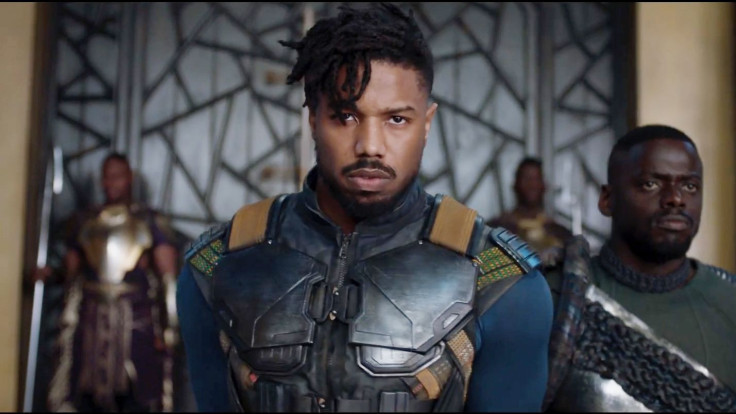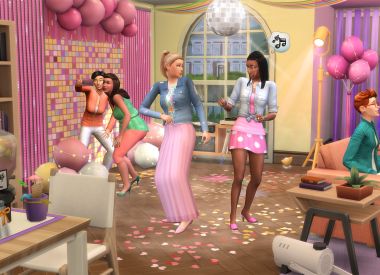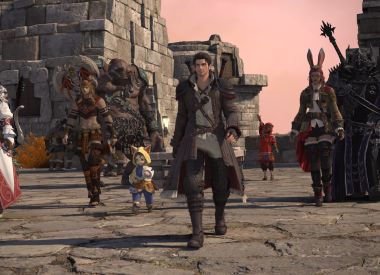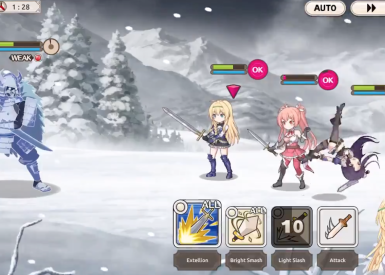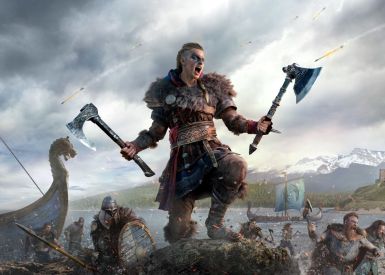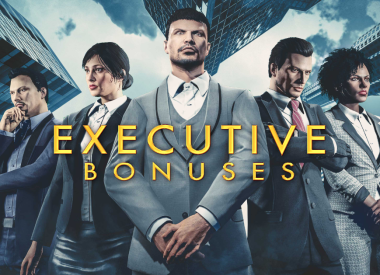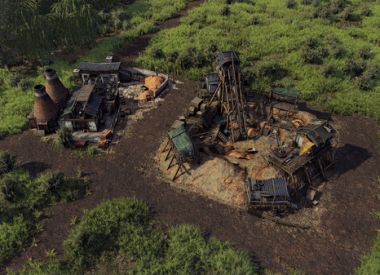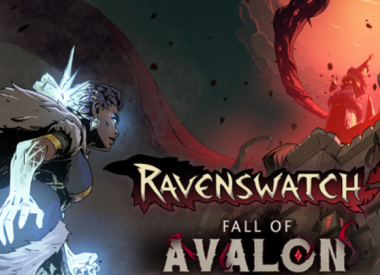Early in the morning of Dec. 4, 1969, 14 Chicago police officers under the authority of the Cook County State’s Attorney’s Office stormed the apartment of Black Panther Party organizer Fred Hampton. After killing Mark Clark, a Black Panther activist assigned as guard, officers fired two rounds into Hampton’s head at point blank range. No shots were fired by the Black Panthers and Hampton never woke: an FBI infiltrator had spiked his dinner drink with a powerful sedative earlier that night. Hampton was 21 years old.
Monday is the 47th anniversary of Hampton’s assassination, but it was to his life and struggle Black Panther director Ryan Coogler (Creed) and cast member Michael B. Jordan (who plays villain Erik Killmonger) paid tribute at last year’s MLK Now celebration of Dr. Martin Luther King Jr. at Harlem’s Riverside Church, where King delivered his under-heard speech against the Vietnam War and for social reform (“A nation that continues year after year to spend more money on military defense than on programs of social uplift is approaching spiritual death”).
“I didn’t find out about him until my adulthood — he’s not someone they teach about in history books, though I wish they did — but the more I found out about him, the more I realized how much we needed him, how much we could have used him, had he lived beyond the years he was given on this Earth,” Coogler said, introducing Jordan to the stage.
Hampton was a very different, but equally powerful orator to King. Both a utopian communist and a practical, grassroots organizer, Hampton brokered peace between Chicago street gangs and fostered the Black Panther Party’s People’s Clinic, door to door health services, blood drives and free breakfast programs for children living in poverty. Hampton believed in communities, where people assert themselves and build together what capitalism and racism deny them. His speaking style — working class, unafraid of emotion and unmodulated for white audiences or TV, right down to the “motherfuckers” — reflected his street-level activism. And while Jordan does a fantastic job delivering Hampton’s speech “ Power Anywhere Where There’s People,” it would be impossible to capture the forcefulness and passion of Hampton’s voice, denied to the world by murderers with the approval of both local power and our federal government.
“You can kill a revolutionary, but you can’t kill the revolution,” Hampton said. Here’s Hampton’s speech, as excerpted by Jordan (the original, delivered to the Olivet Baptist Church in Chicago shortly before his death, can be read here):
“Power anywhere where there's people. Power anywhere where there's people...
A lot of people get the word revolution mixed up and they think revolutions a bad word. Revolution is nothing but like having a sore on your body and then you put something on that sore to cure that infection. And I’m telling you that we’re living in an infectious society right now. Im telling you that were living in a sick society. And anybody that endorses integrating into this sick society before it’s cleaned up is a man who’s committing a crime against the people.
If you walk past a hospital room and see a sign that says ‘Contaminated’ and then you try to lead people into that room, either those people are mighty dumb, you understand me, cause if they weren't, they'd tell you that you are an unfair, unjust leader that does not have your followers' interests in mind. And what we’re saying is simply that leaders have got to become, we've got to start making them accountable for what they do...
I'm saying that any program that's brought into our community should be analyzed by the people of that community. It should be analyzed to see that it meets the relevant needs of that community…
We got to face some facts. That the masses are poor, that the masses belong to what you call the lower class, and when I talk about the masses, I'm talking about the white masses, I'm talking about the black masses, and the brown masses, and the yellow masses, too. We've got to face the fact that some people say you fight fire best with fire, but we say you put fire out best with water. We say you don't fight racism with racism. We're gonna fight racism with solidarity. We say you don't fight capitalism with no black capitalism; you fight capitalism with socialism.
We ain't gonna fight no reactionary pigs who run up and down the street being reactionary; we're gonna organize and dedicate ourselves to revolutionary political power and teach ourselves the specific needs of resisting the power structure, arm ourselves, and we're gonna fight reactionary pigs with international proletarian revolution. That's what it has to be. The people have to have the power: it belongs to the people...
And a lot of people will tell you, ‘Well, the people don’t have any theory, they need some theory. They need some theory even if they don't have any practice.’ And the Black Panther Party tells you…
...if you listen to what the pig says, you be walkin' outside when the sun is shining with your umbrella over your head. And when it's raining youll be goin' outside leaving your umbrella inside. That's right. You gotta get it together. Im saying that's what they have you doing.
Now, what do WE do? We say that the Breakfast For Children program is a socialistic program. It teaches the people basically that by practice, we thought up and let them practice that theory and inspect that theory. What's more important? You learn something just like everybody else.
Let me try to break it down to you.
You say this Brother here goes to school eight years to be an auto mechanic. And that teacher who used to be an auto mechanic, he tells him, "Well, nigger, you gotta go on what we call on-the-job-training." And he says, ‘Damn, with all this theory I got, I gotta go to on-the-job-training? What for?"
He said, ‘On on-the-job-training he works with me. I’ve been here for 20 years. When I started work, they didn't even have auto mechanics. I ain't got no theory, I just got a whole bunch of practice.’
What happened? A car came in making a whole lot of funny noise. This Brother here go get his book. He on page one, he ain't got to page 200. I'm sitting here listening to the car. He says, ‘What do you think it is?’
I say, ‘I think it’s the carburetor.’
He says, ‘No I don't see anywhere in here where it says a carburetor make no noise like that.’ And he says, "How do you know it’s the carburetor?’
I said, ‘Well, nigger, with all them degrees as many as a thermometer, around 20 years ago, 19 to be exact, I was listening to the same kind of noise.’ And what I did was I took apart the voltage regulator and it wasn't that. Then I took apart the alternator and it wasn't that. I took apart the generator brushes and it wasn't that. I took apart the generator and it wasn't that. I took apart the generator and it wasn't even that. After I took apart all that I finally got to the carburetor and when I got to the carburetor I found that that's what it was. And I told myself that 'fool, next time you hear this sound you better take apart the carburetor first.'
How did he learn? He learned through practice.
I don’t care how much theory you got, if it don't have any practice applied to it, then that theory happens to be irrelevant. Right? Any theory you get, practice it. And when you practice it you make some mistakes. When you make a mistake, you correct that theory, and then it will be corrected theory that will be able to be applied and used in any situation. That’s what we've got to be able to do.
Every time I speak in a church I always try to say something, you know, about Martin Luther King. I have a lot of respect for Martin Luther King. I think he was one of the greatest orators that the country ever produced. And I listened to anyone who speaks well, because I like to listen to that. Martin Luther King said that it might look dark sometime, and it might look dark over here on the North Side… And we're not worried about it being dark. He said that the arm of the moral universe is long, but it bends toward heaven.
We got Huey P. Newton in jail, and Eldridge Cleaver underground. And Alprentice Bunchy Carter has been murdered; Bobby Hutton and John Huggins been murdered. And a lot of people think that the Black Panther Party in a sense is giving up. But let us say this: That we've made the kind of commitment to the people that hardly anyone else has ever made.
We have decided that although some of us come from what some of you would call petty-bourgeois families, though some of us could be in a sense on what you call the mountaintop. We could be integrated into the society working with people that we may never have a chance to work with. Maybe we could be on the mountaintop and maybe we wouldn't have to be hidin' when we go to speak places like this. Maybe we wouldn't have to worry about court cases and going to jail and being sick. We say that even though all of those luxuries exist on the mountaintop, we understand that you people and your problems are right here in the valley.
We in the Black Panther Party, because of our dedication and understanding, went into the valley knowing that the people are in the valley, knowing that our plight is the same plight as the people in the valley, knowing that our enemies are on the mountain, to our friends are in the valley, and even though it’s nice to be on the mountaintop, we're going back to the valley. Because we understand that there's work to be done in the valley, and when we get through with this work in the valley, then we got to go to the mountaintop. We're going to the mountaintop because there's a motherfucker on the mountaintop that's playing King, and he's been bullshitting us. And we’ve got to go up on the mountain top not for the purpose of living his lifestyle and living like he lives. We've got to go up on the mountain top to make this motherfucker understand, goddamnit, that we are coming from the valley!”

